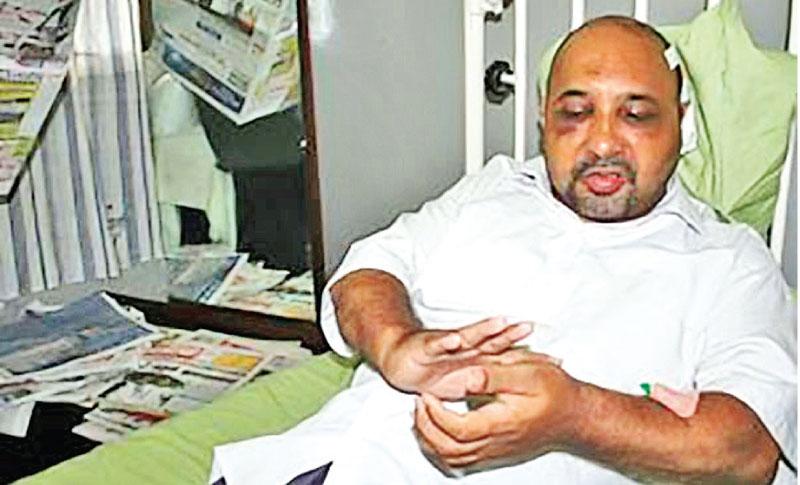
On the eve of International Human Rights Day, the United States has imposed Magnitsky-style sanctions on the former head of a clandestine Sri Lankan Army platoon, known as the “Tripoli Platoon”, Prabath Bulathwatte.
The US State Department explains that the sanctions on Bulathwatte relate to his “involvement in a gross violation of human rights, namely torture and/or cruel, inhuman, or degrading treatment or punishment of Sri Lankan journalist, Keith Noyahr, in May 2008”.
The sanctions on Bulathwatte follow a string of US sanctions on similar Sri Lankan war criminals.
In 2017, Bulathwatte was arrested with regard to this assault however, in May 2019, he was reinstated into the Sri Lankan army. His platoon has been implicated in numerous attacks on high-profile media officials, including the murder of Lasantha Wickramatunga, the abduction of Keith Noyahr, the assault on Upali Tennakoon, and the disappearance of Prageeth Eknelygoda. Bulathwatte is accused of leading the white van abductions.
The torture of Noyahr

Noyahr, then an associate editor of The Nation, was abducted outside his home following the publication of a critical essay that questioned the conduct of Sri Lanka’s Army Commander, Sarath Fonseka. This was in Noyahr’s weekly column which he published under a pseudonym, Senpathi.
According to contemporaneous reports, he was abducted at the entrance of his home, only for his wife to find his car minutes later parked outside the house with “engine running and headlights still on”.
Noyahr was tortured for seven hours by unidentified men before being released in May 2008. The Rajapaksa administration had been accused of orchestrating these white van abductions. Following his release, Noyahr fled the island.
Notably, Noyahr’s article did not raise concerns over the grotesque human rights violations the army engaged in during the final phase of the armed conflict, which included the shelling of hospitals, food-lines and designated “no-fire zones”, but instead raised concerns over systems of patronage.
“There is room for favouritism based on old college ties, family ties, and political ties” Noyahr writes.
He further adds in the piece:
“Gen.Fonseka, no doubt, has been an excellent Army Officer, and needs to be saluted for his achievements, but there are many Officers who opine that he was no gentleman. Considering the manner in which he handled men and matters, promotions and awards”.
Domestic mechanisms
Despite the Sri Lankan government’s continued insistence on a domestic mechanism, the UN has repeatedly highlighted the failures to hold human rights abusers to account. Tamil journalists across the North and East, continue to report acts surveillance, intimidation and violence from Sri Lanka’s military.
